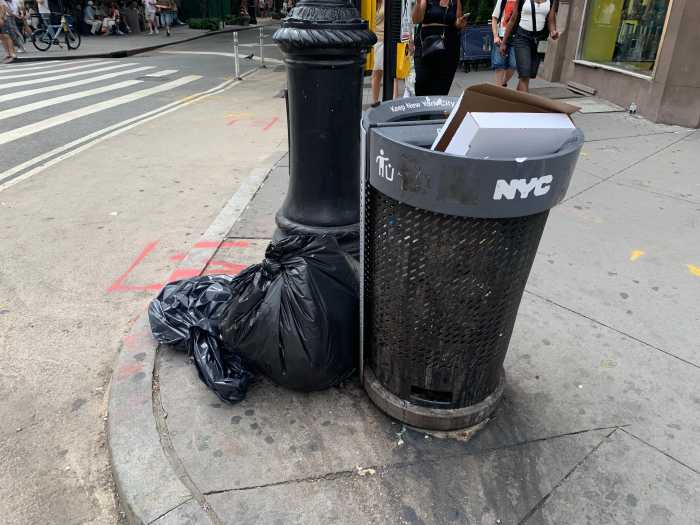Nothing will shut down the momentum of a protest movement faster than extremists who poison the atmosphere with ugly rhetoric, alienating those who are inclined to support their cause.
That’s just what the anti-cop demonstrators on the Brooklyn Bridge seemed determined to do late Tuesday afternoon as they spouted vulgar nonsense while shutting down traffic — all in an effort to draw attention to police shootings of unarmed civilians.
Don’t get us wrong. Peaceful protests, including the right to say almost anything, are a cherished and constitutional right. And a sustained campaign to keep the issue of police shootings and profiling of unarmed black men front and center is important. Surely the time to solve this problem is now. But professional agitators spewing random hate are not the way to get the results most of us want. Protesters threw around chants that compared the NYPD with the KKK, and — in an effort to dust themselves with some 1960s revolutionary nostalgia — shouted, “Cops are pigs!” The arrest of a handful of protesters on the bridge for blocking traffic came after hundreds of people marched through the streets of lower Manhattan, the local component of a national day of protest.
As amNewYork reported, among the marchers Tuesday was Nicholas Heyward, whose 13-year-old son was killed by police in a Brooklyn housing project in 1994. His son had been playing “cops and robbers” with a bright orange toy gun. Long before it became a fashionable hashtag, Heyward and many others have been fighting to say black lives matter.
Yet, what has happened these last eight months — from Ferguson, Missouri, to North Charleston, South Carolina — has finally resulted in a national discussion about racial profiling, as well as the dangers faced by police. There seems to be a national consensus that Congress should pass a law requiring the collection of data about these shootings. Are there more or fewer? Who is shooting and who is being shot? Only then can we understand the scope of the problem and address it.
Don’t let the extremists hijack the message.




































